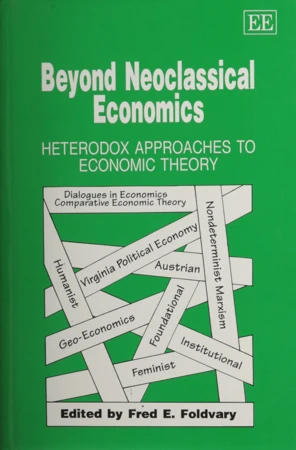✕
Beyond Neoclassical Economics – Heterodox Approaches to Economic Theory

Level:
beginner
Blurb
Beyond Neoclassical Economics is a remarkable new introduction to the main heterodox schools of economic thought which examines their main concepts and their critiques of mainstream theory.Offering a wide spectrum of theory and viewpoints that both complement and challenge mainstream and conventional thought, this substantial volume explores schools of thought and traditions poorly covered in most conventional economics textbooks. The schools presented include Austrian economics, Geo-economics, the Virginia school of political economy, Institutional economics, Feminist economics, Humanist economics and Nondeterminist Marxism. The papers in this volume have been prepared by leading scholars who offer new perspectives on conventional thought, as well as dialogue and commentary between their different approaches to economics.
The aim of this major book is not only to understand the thought, methodology, and approach of various economic schools, but also to explain why there are different approaches to economics and how the different schools relate to one another.
We use cookies on our website. Click on Accept to help us to make Exploring Economics constantly better!

